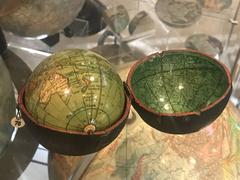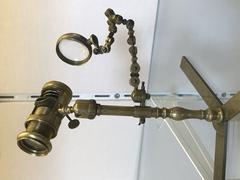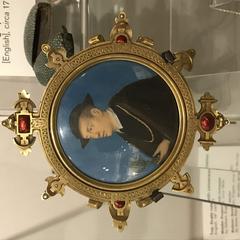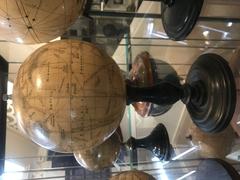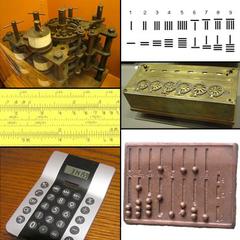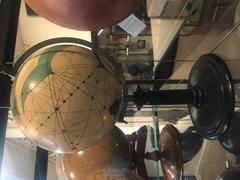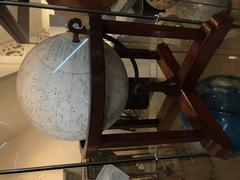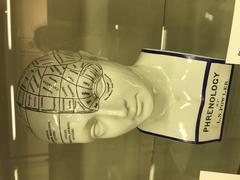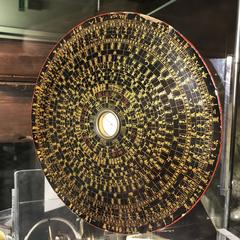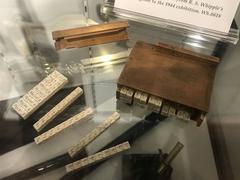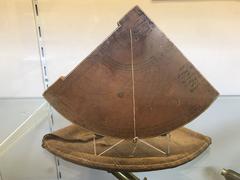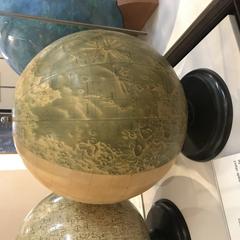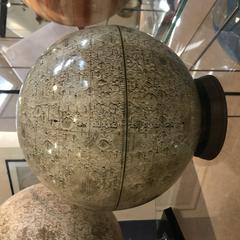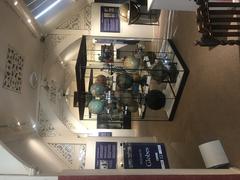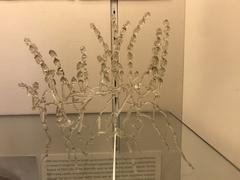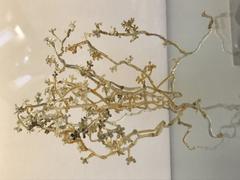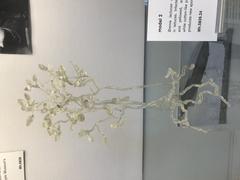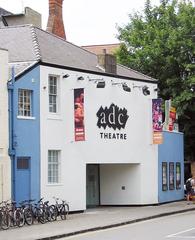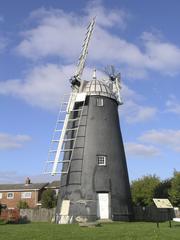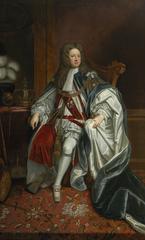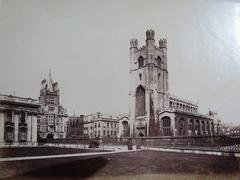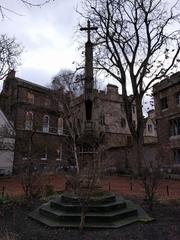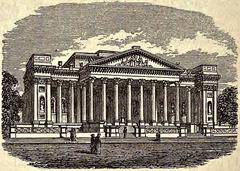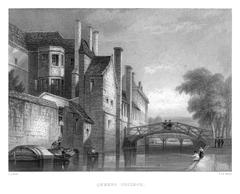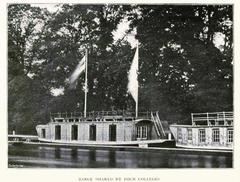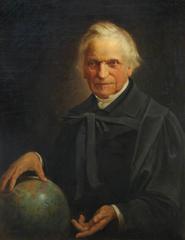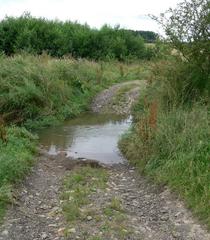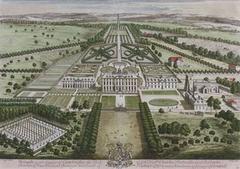
Whipple Museum of the History of Science: Visiting Hours, Tickets, and Complete Guide (Cambridge, UK)
Date: 14/06/2025
Introduction
Nestled in the heart of Cambridge, the Whipple Museum of the History of Science is a world-renowned institution dedicated to the preservation, interpretation, and celebration of scientific heritage. Founded in 1944 following the generous bequest of Robert Stewart Whipple—a distinguished instrument maker and collector—the museum now houses more than 10,000 scientific instruments and rare books spanning from the medieval period to the twenty-first century. Its collections, set within a historic 17th-century building, offer an unparalleled window into scientific discovery and its cultural context.
Integrated into the University of Cambridge’s Department of History and Philosophy of Science, the Whipple Museum is a vibrant hub for research, education, and public engagement. Whether you are a scholar, student, science enthusiast, or curious traveler, this guide provides all the essential information you need for a rewarding visit, including its history, collections, practical visitor information, and tips to enhance your experience.
For the most up-to-date information, please refer to the official Whipple Museum website and the Cambridge University Department of History and Philosophy of Science.
Contents
- Origins and Founding of the Museum
- Growth and Development of the Collections
- Key Exhibits and Thematic Galleries
- Visiting Hours, Tickets, and Location
- Accessibility and Visitor Services
- Travel Tips and Nearby Attractions
- The Museum’s Educational and Community Role
- FAQs
- Conclusion & Planning Your Visit
- Sources
Origins and Founding of the Whipple Museum
The Whipple Museum originated from the remarkable collection of Robert Stewart Whipple (1871–1953), the Managing Director of the Cambridge Scientific Instrument Company. In 1944, Whipple donated over 1,000 scientific instruments and 1,200 rare books to the University of Cambridge, aiming to foster research and education in the history of science (Cambridge University HPS). The museum officially opened its doors in 1951, housed in the former Perse School building on Free School Lane—a historic site that continues to shape the museum’s unique character.
Growth and Development of the Collections
Whipple’s initial bequest laid the foundation for a rapidly growing and internationally significant collection. Today, the museum’s holdings include:
- Medieval and Renaissance astronomical instruments (e.g., English astrolabes, armillary spheres)
- Early modern mathematical and navigational tools (sectors, octants)
- Nineteenth-century optical devices, including microscopes and early photographic equipment
- Twentieth-century computing artifacts, such as calculators and early computers
- Scientific models and teaching aids, including anatomical models and agricultural indicators
The museum’s collection is continually researched and reinterpreted, with new acquisitions and scholarship enhancing its educational and cultural value (Cambridge Core; HPS Museum Collections Portal).
Key Exhibits and Thematic Galleries
Main Gallery and Historic Setting
The museum’s Main Gallery, built in 1618, is itself part of Cambridge’s history. Originally part of the city’s first Free School, this space now provides a striking backdrop for the museum’s displays (Whipple Museum - About Us).
Collection Highlights
- Astronomy and Navigation: Explore telescopes, astrolabes, sextants, and globes, tracing the evolution of celestial observation and navigation.
- Mathematical Instruments: Slide rules, early calculators, and drawing apparatus chart the history of mathematical practice.
- Early Electrical Apparatus: Leyden jars, electrostatic generators, and demonstration devices reflect advances in electrical science.
- Sundials and Timekeeping: An array of sundials, clocks, and watches showcase horological innovation.
Notable Artifacts
- Charles Darwin’s Microscope: A highlight for visitors, offering a direct link to one of science’s most influential figures (Flip Flops Included).
- Babbage’s Differential Engine Section: An artifact of early computing (Britain Visitor).
- Special Exhibitions: The museum regularly hosts temporary exhibitions focusing on themes such as scientific forgeries, visualization in genetics, and LGBTQ+ histories in science (Whipple Museum - About Us; events page).
Visiting Hours, Tickets, and Location
- Address: Free School Lane, Cambridge, CB2 3RH, United Kingdom
- Opening Hours:
- Monday to Friday: 12:30–16:30
- Selected Saturdays (typically the third Saturday of each month): 10:00–16:00
- Closed on bank holidays and some university holidays (check official website for updates)
- Admission/Tickets: Free admission for all visitors; groups of 10 or more are asked to book in advance via the museum’s booking page.
- Guided Tours: Available by request for groups and during special events. Advance booking recommended.
Accessibility and Visitor Services
- Step-Free Access: Via New Museums Site entrance on Downing Street, with lifts serving all floors (Museums Cambridge).
- For Visitors with Disabilities: Designated parking on Free School Lane, tactile resources in selected galleries, and staff assistance available upon request.
- Visual Story: Downloadable guides available to help children and neurodiverse visitors prepare for their visit.
- Facilities: Standard toilets on site; Changing Places toilet nearby in the Grand Arcade car park. Limited cloakroom space at reception.
- Photography: Non-flash photography for personal use permitted; contact the museum for permissions related to research or publication.
- Museum Shop: Books, souvenirs, and educational items available.
Travel Tips and Nearby Attractions
- Getting There:
- On Foot/Bicycle: Central location, easy walking distance from major landmarks.
- Public Transport: 20-minute walk from Cambridge railway station; Citi 1 and Citi 3 buses stop nearby.
- By Car: Limited parking; Park & Ride services recommended (Museums Cambridge).
- Nearby Attractions:
- Fitzwilliam Museum
- Cambridge University Botanic Garden
- King’s College Chapel
- The Eagle Pub (site of DNA discovery announcement)
- Mathematical Bridge
- Duration: 1–2 hours recommended for most visits.
- Food & Drink: No café on site; numerous options nearby in central Cambridge.
The Museum’s Educational and Community Role
The Whipple Museum is a center for hands-on learning and public engagement. It offers:
- Workshops and Talks: Regular events for all ages, including school sessions and specialist lectures (HPS Museum Collections Portal).
- Special Exhibitions: Thematic displays and temporary exhibitions highlight new research and celebrate scientific milestones.
- Integration with University Teaching: The museum’s collections are actively used in university courses and research (Museums.cam.ac.uk).
- Community Outreach: Family activity sheets, interactive exhibits, and downloadable resources support accessible learning.
Frequently Asked Questions (FAQs)
Q: What are the opening hours?
A: Monday to Friday, 12:30–16:30; selected Saturdays (usually the third Saturday), 10:00–16:00. Closed on bank holidays.
Q: Is admission free?
A: Yes. All visitors are welcome free of charge; groups of 10+ should book in advance.
Q: How do I get there?
A: Centrally located; accessible on foot, by bike, public transport, or Park & Ride.
Q: Is the museum accessible?
A: Yes, with step-free access, lifts, parking, and tactile experiences; contact in advance for specific needs.
Q: Can I take photographs?
A: Non-flash photography for personal use is allowed; permissions required for publication.
Q: Are there guided tours?
A: Yes, by arrangement for groups and during special events.
Q: What else can I visit nearby?
A: Fitzwilliam Museum, Cambridge University Botanic Garden, King’s College Chapel, and more.
Conclusion & Planning Your Visit
The Whipple Museum of the History of Science is a must-see for anyone interested in the story of science and technology. With its rich collections, free admission, accessible central location, and commitment to education and public engagement, the museum is a highlight of Cambridge’s cultural landscape. Plan your visit by checking the official museum website, download the Visual Story for families and neurodiverse visitors, and consider exploring Cambridge’s other historic sites to make the most of your day.
Enhance your experience by downloading the Audiala app for guided tours and audio content. Stay connected by following the museum and Audiala on social media for updates on exhibitions, talks, and special events.
Enjoy your visit to one of Cambridge’s most captivating historical attractions!
Sources and Further Reading
- Whipple Museum Official Website
- Cambridge University HPS
- Cambridge Core: Whipple Museum of the History of Science
- Whipple Museum - About Us
- Flip Flops Included
- Britain Visitor
- Britain Express
- Exploring Cambridge
- Museums Cambridge
- Whipple Museum Newsletter
